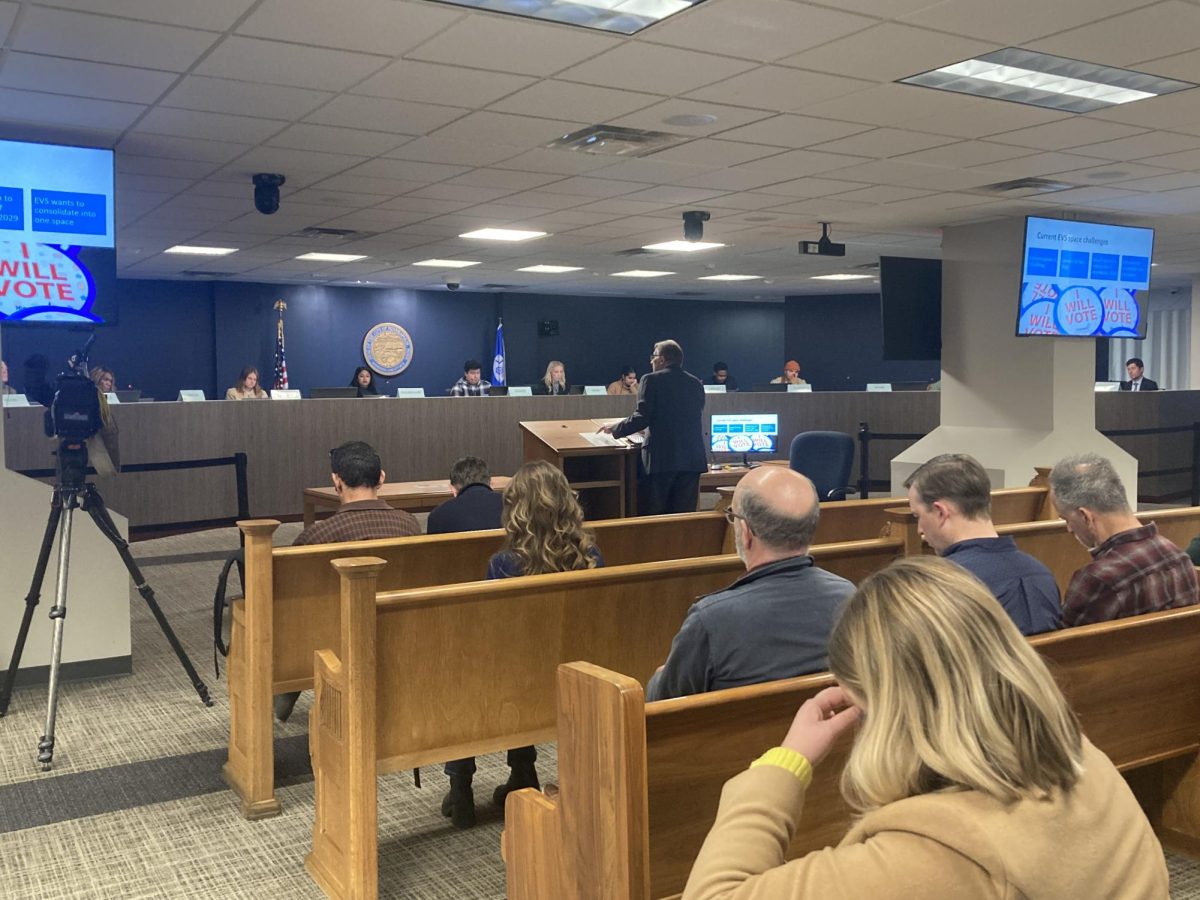Debt and the cost of college are the focus of several Democratic presidential candidates’ campaigns ahead of the 2020 Democratic primary.
Policy statements range from offering student loan refinancing at lower interest rates to canceling all student debt. Some candidates have proposed no-cost community college, while others seek to make all public colleges tuition free.
The eventual democratic nominee will run against presumptive Republican nominee President Donald Trump, who has expressed a desire to realign education with workforce needs, encourage responsible loan borrowing and simplify student aid.
In a field of more than 20 Democratic candidates, four polled above 10 percent in a recent ABC News/Washington Post poll asking who democratic-leaning registered voters would support in their state’s primary or caucus. The Minnesota Daily outlined parts of these candidates’ plans and asked students to share some of their thoughts.
Former Vice President Joe Biden – Delaware
In the first Democratic debate last month, Biden, who polled at 30 percent, said he believes community college should be free and student debt payments should be frozen for those making less than $25,000 annually.
“We can’t put people in a position where they aren’t able to go on and move on,” Biden said. “We have to make continuing education available for everyone so that everyone can compete in the 21st Century.”
Incoming freshman Ajanice Knox said while she likes the idea, she would like greater focus on students going beyond community college as well.
The current front-runner’s campaign website outlines a desire to expand partnerships between high schools and community and vocational schools, allowing students to graduate high school with more practical, job-focused credentials.
Sen. Bernie Sanders – Vermont
Sanders, who polled at 19 percent, has been a leader in education reform proposals since his 2016 run for president, with other presidential candidates signing on to his bill promoting free public college.
“I believe that education is the future for this country,” Sanders said at the debate. “That is why I believe that we must make public colleges and universities tuition-free and eliminate student debt.”
His campaign says he will pass his College for All Act, which would provide $48 billion per year to eliminate tuition and fees at public post-secondary institutions.
Citing the current student debt burden approaching $1.6 trillion, Sanders said he will cancel all student debt, regardless of income, for 45 million Americans.
Fifth-year student and Sanders supporter Ryan Ellering has about $63,000 in debt currently and thinks canceling student loans would be “fantastic.”
“All of [the costs of college] build up really quickly, into very large debt. It’s scary,” Ellering said. “If that was something that he would be able to do, while I know it would raise taxes obviously, it would be a lot better.”
To reduce future debt burden, Sanders’ plan would expand Pell Grants to cover non-tuition related costs of college, such as housing and books. It requires institutions to cover any remaining gap in obtaining a degree for low-income students, matching additional state money “dollar for dollar.”
Sanders’ plan is estimated to cost $2.2 trillion, which his campaign said is paid for with a Wall Street tax, placing taxes on stock, bond and derivative trades, raising $2.4 trillion over the next decade.
Sen. Kamala Harris – California
While higher education focused policy has not been a central focus of her campaign, Harris, who polled at 13 percent, supports making community college free and wants to make four-year public college debt free, according to her campaign website.
“Students shouldn’t fear decades of debt just because they want to pursue an education,” Harris’ campaign website says. “As president, she’ll provide relief from crushing college debt today and ensure tomorrow’s students can attend college debt free.”
Harris supports refinancing student loans at lower interest rates and wants to make income-based repayment plans the norm, rather than an option borrowers can opt into.
Sen. Elizabeth Warren – Massachusetts
Warren, who polled at 12 percent, has made higher education a pillar of her campaign, saying she will cancel student loan debt and make all two and four-year public colleges free.
“My family didn’t have the money for a college application, much less a chance for me to go to college,” Warren said during the first democratic debate. “But I got my chance … and it opened my life.”
Her plan cancels up to $50,000 in student loan debt for those with a household income below $100,000, with the amount canceled progressively decreasing as income increases, according to a Medium post outlining her plan. Cancellation would be automatic for most Americans and wouldn’t apply to those with household incomes above $250,000.
Incoming student Kate Juusola said she doesn’t support loan cancellation or free college. Juusola, who anticipates voting for Trump in 2020 said, while school is free in other countries, it is often harder to get into college.
“Paying for school makes people take it more into their own hands,” she said. “I don’t think college should cost as much as it does, but I don’t think it should be free.”
Warren wants to curb future student debt problems by increasing investment and expanding who is eligible for Pell Grants.
The plan’s price tag is $1.25 trillion over a decade, $640 billion for loan cancellation alone but a 2 percent tax on households worth over $50 million and an additional 1 percent on those worth more than $1 billion would cover the cost, according to the post.
Third-year student Carrie Kistler, who favors Warren, said she would worry about the economic impact of canceling student loans, but thinks paying for it by taxing wealthy Americans isn’t a problem.








